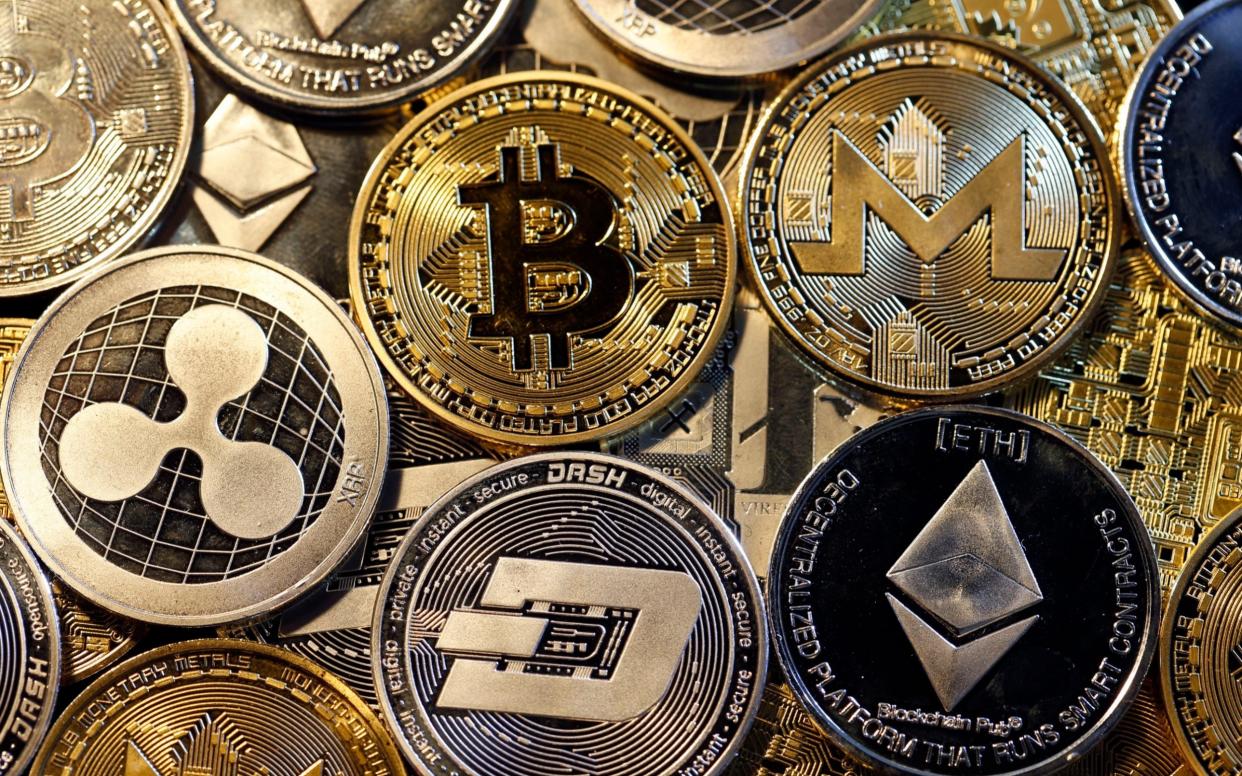Rishi Sunak opens door to 'Britcoin' digital currency backed by Bank of England

- Oops!Something went wrong.Please try again later.
The possibility of creating a digital currency that could be used alongside cash and cards for everyday transactions in Britain will be explored by a new taskforce.
Rishi Sunak said the Treasury and the Bank of England would examine the viability of a "digital pound" for businesses and households as part of a drive to make the UK's finance sector more innovative post-Brexit.
City bosses including Barclays boss Jes Staley and Schroders chief executive Peter Harrison welcomed the project, which was dubbed "Britcoin" by the Chancellor on Twitter.
Simon Taylor, the co-founder of financial technology consultancy 11:FS, said it was "absolutely crucial" for the UK to keep up with other countries already testing out digital currencies.
"If the UK does not act, both the pound and the UK payment systems are likely to end up losing out significantly to global competition," he warned.
Britcoin? #UKFW21 https://t.co/Slk5lwUvrV
— Rishi Sunak (@RishiSunak) April 19, 2021
The idea of setting up a British version of Bitcoin, the most popular digital currency, has existed for some time, but this is the first time a dedicated team of officials has been assigned to consider it.
The Bank said a digital currency would not replace cash or bank deposits. Mr Sunak is under pressure to make the UK a leader in financial technology amid fears Brexit will damage London's status as Europe's financial capital.
The Chancellor announced plans for the digital currency taskforce as part of UK Fintech Week, saying that while Britain was already known for being at the forefront of innovation "we need to go further".
Earlier this year Mr Sunak said the City should brace for "Big Bang 2.0" following the UK's departure from the EU, suggesting a repeat of the sweeping deregulation of financial services under Margaret Thatcher.
The UK is among a growing number of countries exploring the idea of state-owned currency. A poll of 66 central banks by the Bank for International Settlements (BIS), which represents them, last year found at least 52 countries were developing their own digital currencies.
Mr Sunak's plans emerged a day after China said it was expanding its pilots for a digital yuan to more cities as it moves closer to becoming the first nation to launch a cryptocurrency. Sweden is also testing out the idea of an “e-krona”.
Mr Taylor said the UK can take lessons from China, which he says already has more than 200,000 users in its pilot.
"We need to talk less, and learn through doing," he said. "Having a state-backed currency allows for the control of inflation through interest rates and management of the economy. Countries that have poorly managed currencies often end up reverting to the US dollar when they experience high inflation."
Technology experts have argued that central banks have been spurred into action by the likes of Facebook and Amazon that plans to launch their own cryptocurrencies.
However the BIS insisted last year that no central banks had reported any significant use of cryptocurrencies by the wider public for either domestic or cross-border payments in 2020.
Rather, the use of cryptocurrencies was either “trivial”, non-existent or concentrated in niche groups, the Swiss-based organisation said.
John Howells, the chief executive of the UK’s largest cash machine network Link, said that as the use cash of continued to decline it was “essential that new digital innovations” were set up in a way that “supports physical notes for as long as it needed”.

